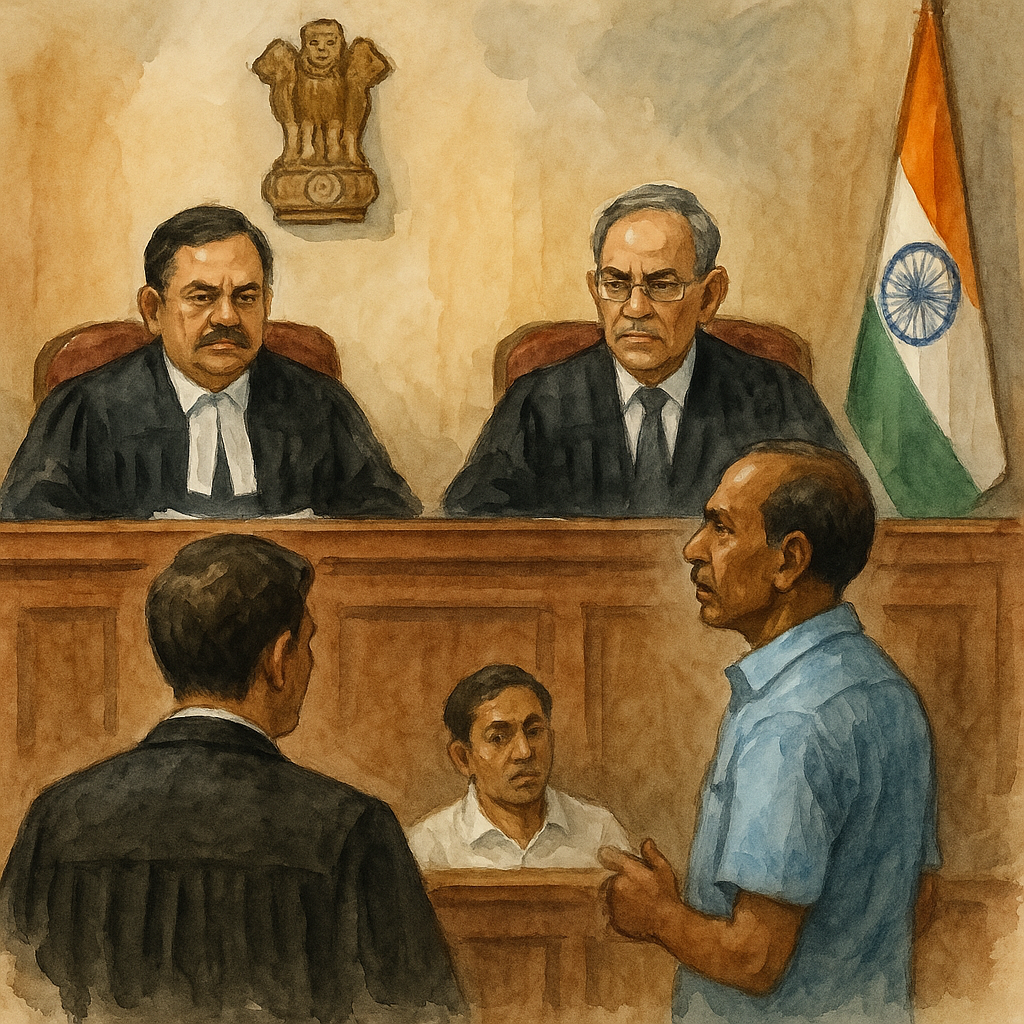Simplified Explanation of the Judgment
In a significant ruling concerning service discipline and personal conduct, the Patna High Court dismissed an appeal by a former Assistant Sub-Inspector of the Central Reserve Police Force (CRPF), who was challenging his dismissal from service. The dismissal was based on two major allegations: entering into a second marriage during the subsistence of the first and producing forged documents during the departmental inquiry.
The appellant, while serving in the CRPF in Imphal, solemnized a second marriage with a fellow CRPF Constable, even though his first marriage was still legally valid. The first wife lodged a complaint, which triggered departmental proceedings. During the inquiry, the appellant allegedly submitted forged documents in his defense. The inquiry officer found all charges proven, leading to the appellant’s dismissal.
The dismissal was challenged in appeal and revision, but both were rejected by the competent authorities. The appellant then filed a writ petition (CWJC No. 8078 of 2007), which was also dismissed by a Single Judge of the Patna High Court in 2014. The present Letters Patent Appeal (LPA) was filed to contest that decision.
The appellant argued that his first wife had consented to the second marriage and had even submitted an affidavit to that effect. He contended that this should have been considered as a mitigating factor. However, the Division Bench of the High Court rejected this argument. The Court held that even with the first wife’s consent, solemnizing a second marriage while the first was still subsisting is a misconduct under service rules, particularly for a disciplined force like CRPF. Furthermore, the use of forged documents in the inquiry was an independent and serious offense.
The Court noted that the Single Judge had already considered all relevant facts, and there was no violation of natural justice or procedural irregularity. Accordingly, the appeal was dismissed at the admission stage itself.
Significance or Implication of the Judgment
This judgment reinforces the high standards of integrity and personal conduct expected from members of the armed and paramilitary forces. It sends a clear message that personal misconduct, especially involving second marriages without lawful separation, can lead to dismissal from service, even if there is consent from the first spouse.
The ruling also emphasizes the gravity of forging documents in departmental proceedings. The judiciary has maintained a strict stance against such misconduct, highlighting that procedural fairness cannot be stretched to excuse fraudulent behavior.
For public servants, particularly in uniformed services, this judgment reiterates that personal life choices have direct implications on professional standing and disciplinary evaluation.
Legal Issue(s) Decided and the Court’s Decision
- Can a government servant solemnize a second marriage during the subsistence of the first if the first spouse consents?
➤ No; consent does not override service rules prohibiting bigamy. - Does submission of forged documents during departmental proceedings constitute independent misconduct?
➤ Yes; forgery in official proceedings is a serious offense and justifies dismissal. - Was there any violation of natural justice or procedural irregularity?
➤ No; the Court found the proceedings were fair and all rules were followed.
Case Title
Binod Kumar Singh vs. Union of India & Ors.
Case Number
Letters Patent Appeal No. 1707 of 2017
(In CWJC No. 8078 of 2007)
Citation(s)
2020 (1) PLJR 625
Coram and Names of Judges
Hon’ble Mr. Justice Hemant Kumar Srivastava
Hon’ble Mr. Justice Prabhat Kumar Singh
Names of Advocates and who they appeared for
- Mr. Arun Kumar and Mr. Nirmal Kumar Sinha No. 3 — for the appellant
- Mr. Manoj Kumar Singh (C.G.C.) — for the respondents (Union of India)
Link to Judgment
https://patnahighcourt.gov.in/viewjudgment/MyMxNzA3IzIwMTcjMSNO-9XvVDDbdsGw=
If you found this explanation helpful and wish to stay informed about how legal developments may affect your rights in Bihar, you may consider following Samvida Law Associates for more updates.









